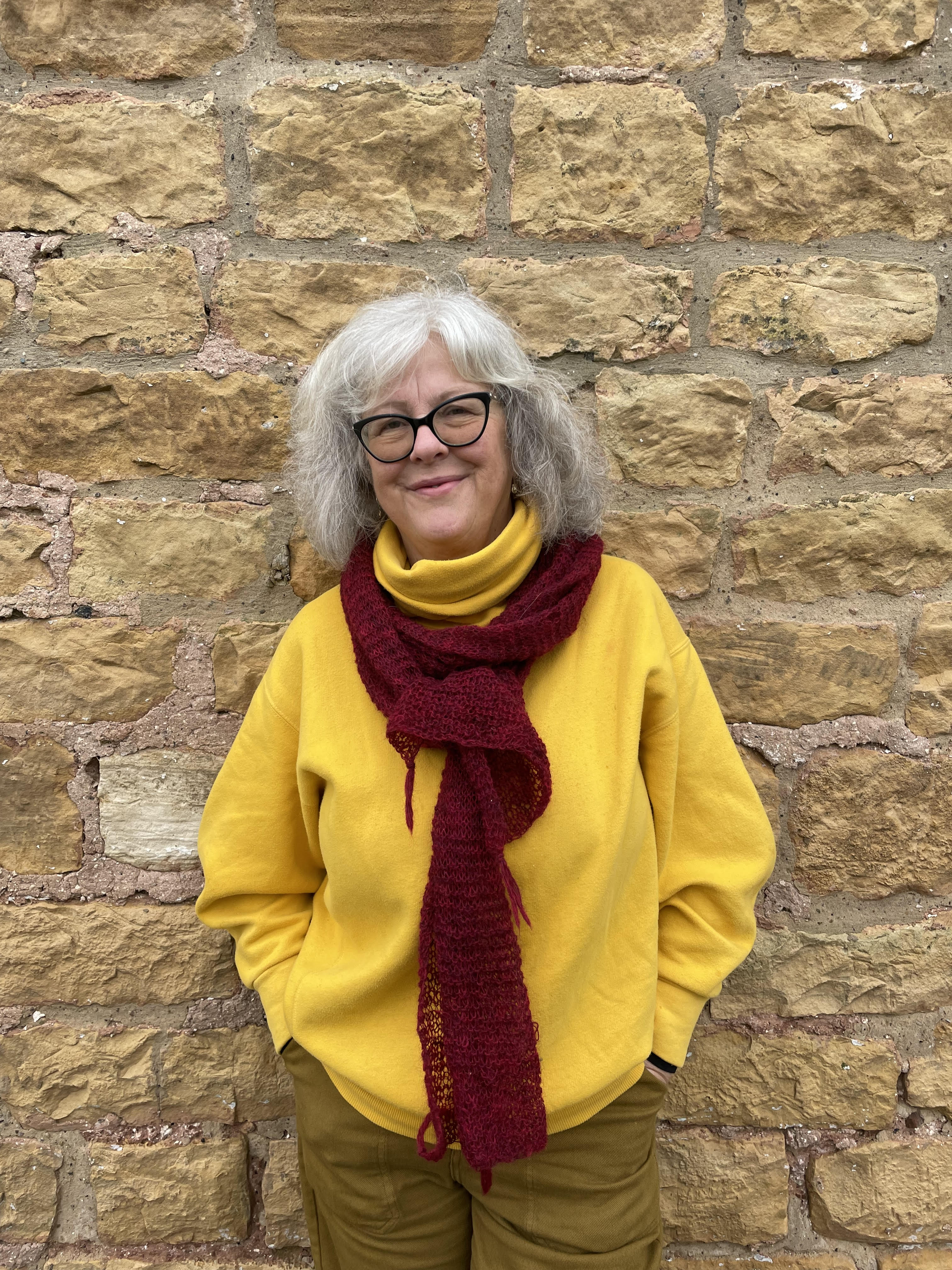“I’ve met women who’ve lost their homes because of the pension scandal” – 3 women share why they're fighting for their futures
From turning to food banks and renting out homes, to working through serious health problems, three women campaigning for their pension rights reveal how this crucial issue has impacted their lives

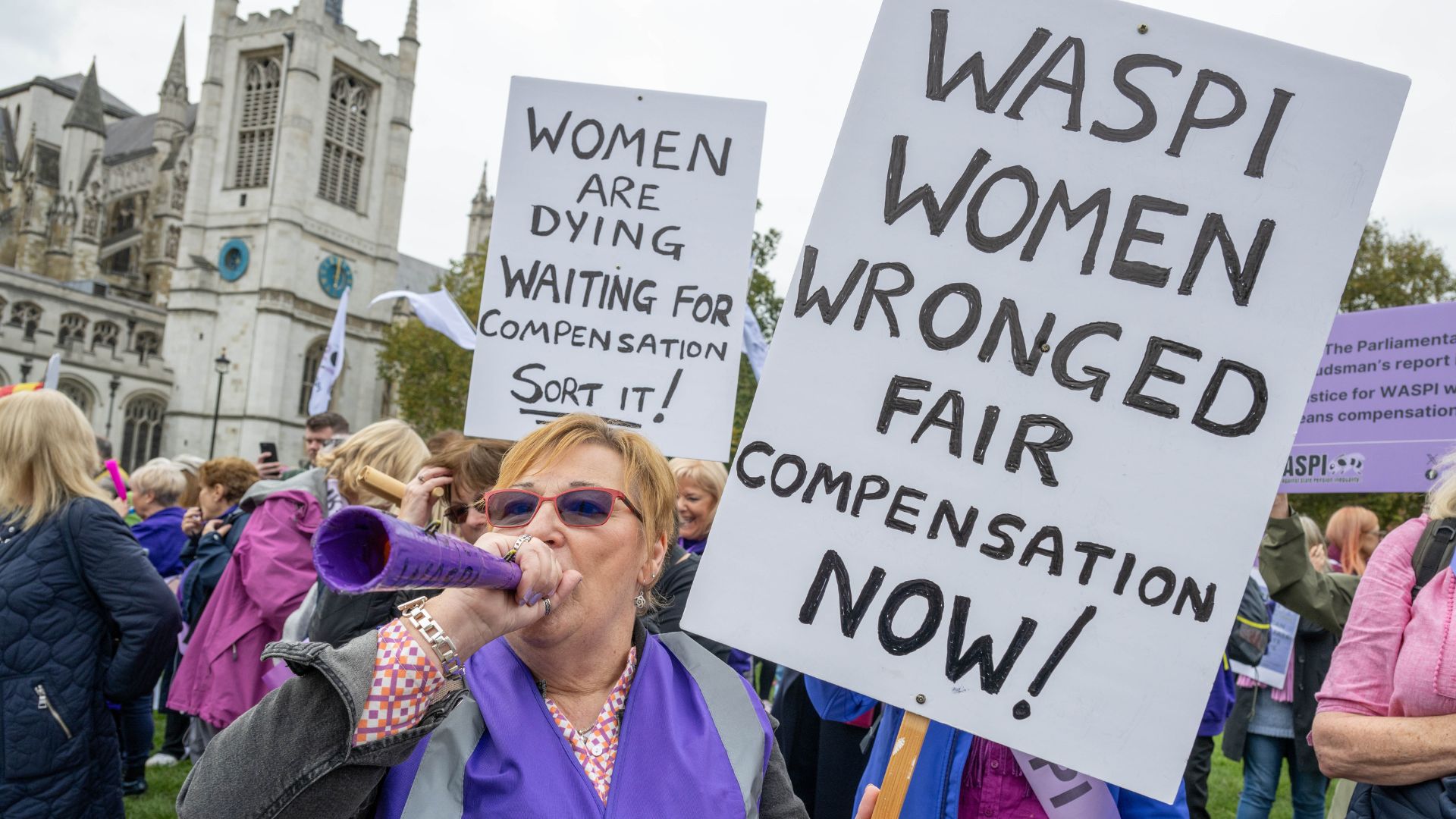
Sign up to our free daily email for the latest royal and entertainment news, interesting opinion, expert advice on styling and beauty trends, and no-nonsense guides to the health and wellness questions you want answered.
You are now subscribed
Your newsletter sign-up was successful
Want to add more newsletters?

Daily (Mon-Sun)
woman&home Daily
Get all the latest beauty, fashion, home, health and wellbeing advice and trends, plus all the latest celebrity news and more.

Monthly
woman&home Royal Report
Get all the latest news from the Palace, including in-depth analysis, the best in royal fashion, and upcoming events from our royal experts.

Monthly
woman&home Book Club
Foster your love of reading with our all-new online book club, filled with editor picks, author insights and much more.

Monthly
woman&home Cosmic Report
Astrologer Kirsty Gallagher explores key astrological transits and themes, meditations, practices and crystals to help navigate the weeks ahead.
In a bombshell report released in March 2024, the UK Parliamentary and Health Service Ombudsman called on the government to financially compensate 3.6 million British women born in the 1950s and to apologise for the shambolic handling of the state pension age rise.
Many women have been thrust into poverty because they weren't informed about the sudden change and could not plan for their future properly or adjust their plans.
But in December, Work and Pensions Minister Liz Kendall announced the government would not pay compensation, despite the watchdog’s recommendation. She claimed the "vast majority" of affected women knew about the change, and sending letters on time would have made little difference.
The decision sparked fury across the political spectrum. Angela Madden, Finance Director and Chair of the Women Against State Pension Inequality (WASPI) campaign, said: “This is a bizarre and totally unjustified move which will leave everyone asking what the point of an ombudsman is if ministers can simply ignore their decisions. It’s an insult.”
Now the WASPI campaign is planning to challenge the government in court, and has filed for a High Court judicial review. As we wait to hear whether or not permission will be granted for the claim to proceed to a full hearing, we spoke to Angela and two other WASPI women about how this issue has impacted their lives.
Blindsided by the sudden change
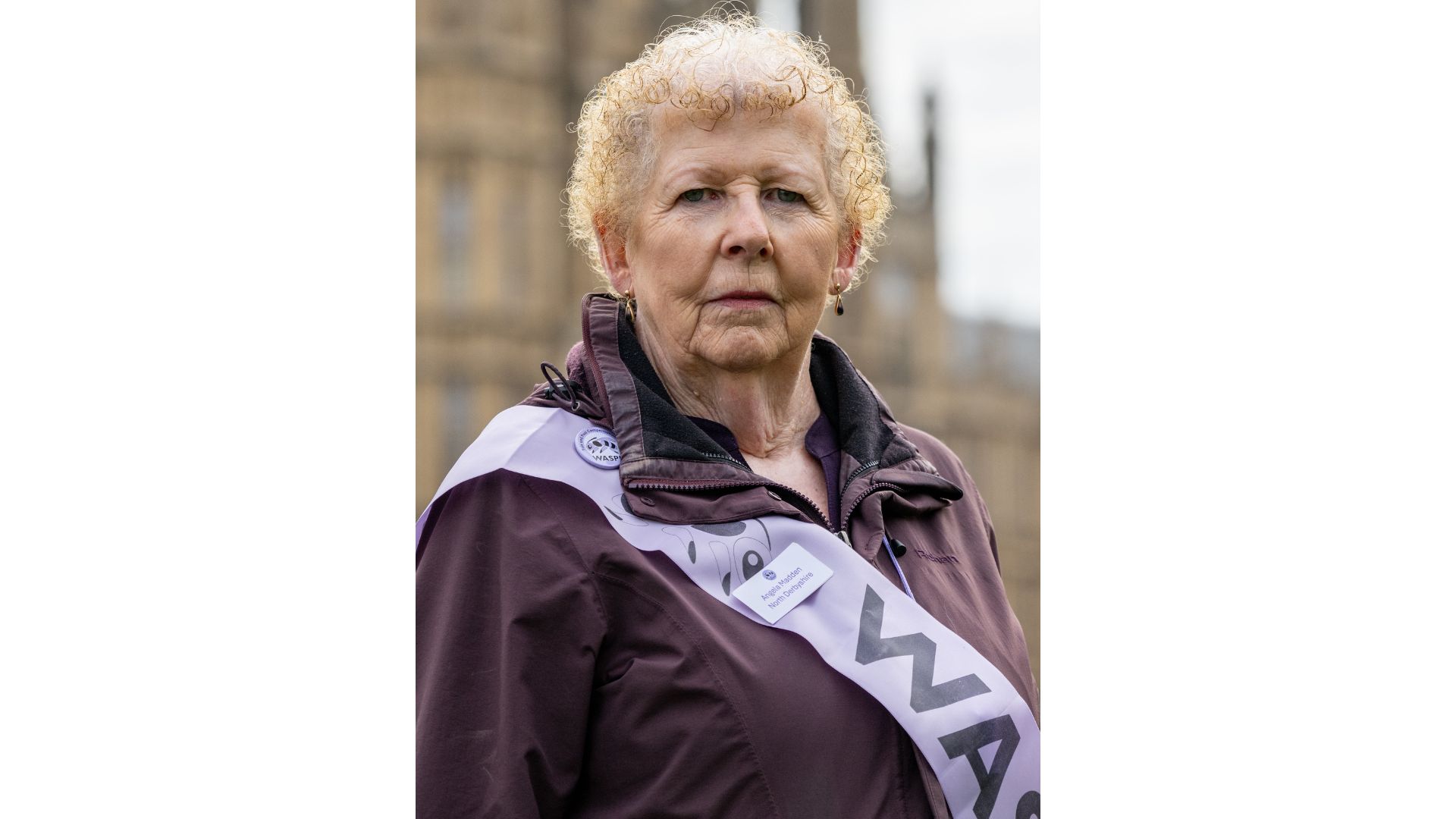
Angela, 71, who lives near Chesterfield, Derbyshire, worked in senior management before her retirement. She says, “I stopped working in 2008 to spend time with my elderly mother, believing I’d be eligible for my pension on turning 60, six years later. I’d done my budget, created my spreadsheet – as far as I was concerned, my future finances were all worked out.
“But in 2012, two years before my pension was due, I got a letter saying that I wouldn’t get it until 2020. I was floored, nonplussed. Having always worked full-time, I’d never been in a benefits office. Apparently, that’s where leaflets announcing the change could be found, but I never saw them. I couldn’t believe this could happen without me knowing.
Sign up to our free daily email for the latest royal and entertainment news, interesting opinion, expert advice on styling and beauty trends, and no-nonsense guides to the health and wellness questions you want answered.
“By then, my skills were out of date, and it was unlikely I’d find a new job. I would have chosen to work part-time if I’d known, but I wasn’t given that opportunity. I could have got a cleaning job, but I’d always worked in professional roles and was no longer as fit as I had been. I was absolutely furious.
“Luckily, my husband could support me. But it was the first time in my life I’d been unable to support myself, which had a terrible effect on my self-worth and self-esteem. It left me feeling worthless, and my faith in the system was gone.
“Since becoming involved in the WASPI campaign, I’ve met women who’ve lost their homes and are sofa surfing or forced to move back in with ex-partners, just to have a roof over their heads. I’ve heard many tragic stories. We’ve been badly let down, but we’ll fight for justice all the way.”
A huge toll on health and finances
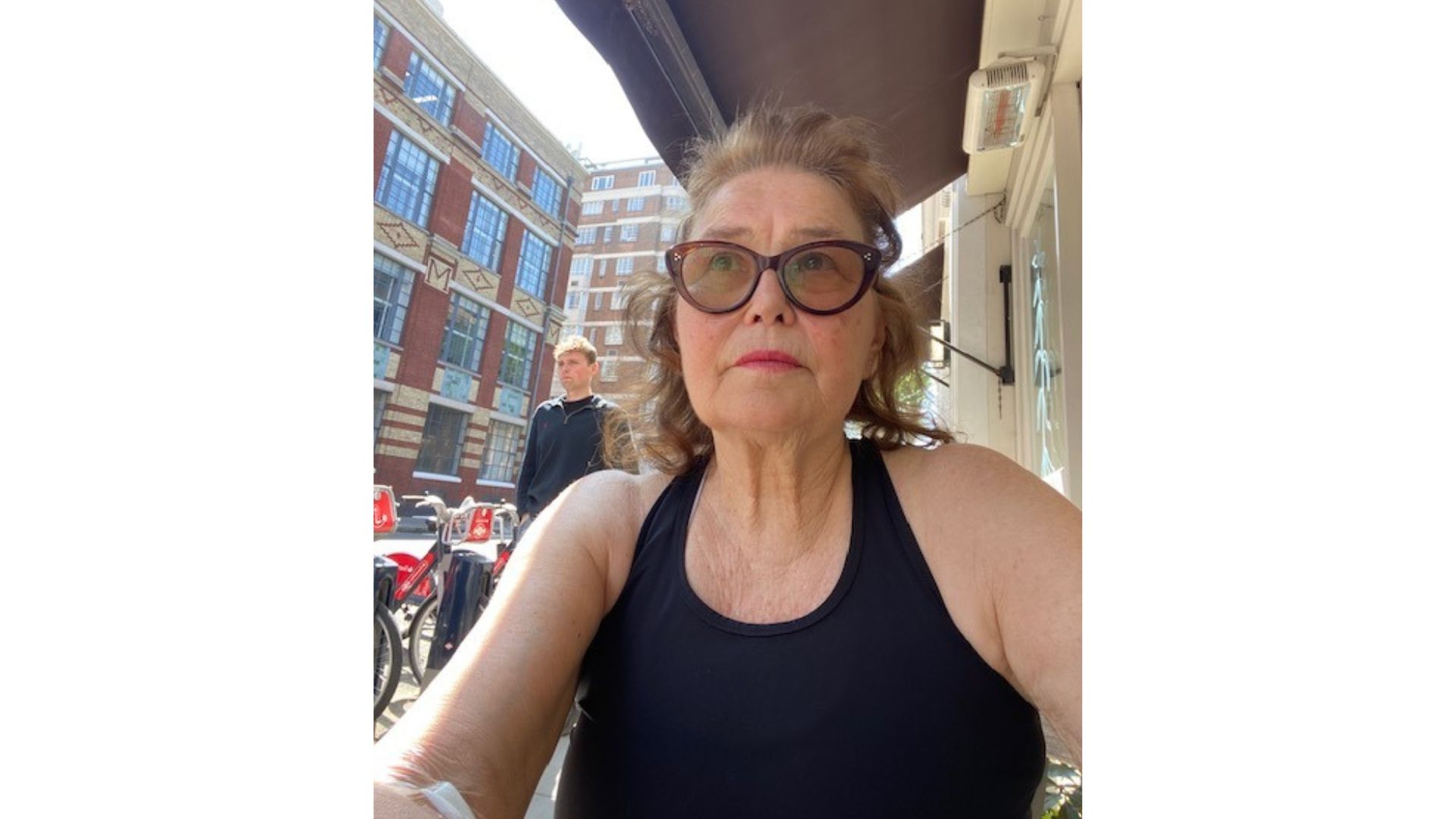
Retired art educator Michele Carlile, 71, who lives in London was also blindsided by the change in pension age. She says, “Forget being able to relax – my retirement has been horrendous. I nearly lost my home and had no choice but to work while medically unfit. The stress has taken a terrible toll.
“For me, the situation feels especially bad as my family has a history of serious heart disease, and doesn’t fit the longevity model used by the government. I was diagnosed with severe angina at the age of 59 and forced to stop work. Since then, I’ve had two heart attacks, one of which nearly killed me last summer.
“To me, this is a part of a bigger picture of historic gender bias. Women my age suffered massive pay inequality throughout our working lives and were not encouraged to pay into private pensions like younger generations. And when I divorced in the 80s, the courts were hugely biased towards men and I ended up with very little.
“It was against this backdrop that I discovered my pension had been delayed by six years. The shock was horrendous. My income plummeted to a small teacher’s pension of around £500 a month, plus a personal independence payment (PIP) of around £150 a month.
“There was no way I could pay my mortgage, so I rented out my home and moved into my son’s house at first. I’ve only been able to avoid selling by changing to a lifetime mortgage, which means selling back to the lender in return for having a roof over my head until I die. And, barely able to survive, I took some part-time teaching work, even though I was seriously ill. I didn’t have a choice.
“I finally received my pension at 66, but the seven-year gap left me in debt. I’ve missed out on around £50k and will never recover financially. This should have been my time to relax and enjoy whatever time I have left, but that’s been taken away from me and I will never get it back.”
The local food bank has been a lifeline

Maria Fuccio, 68, has three grown-up children and lives in Gosport. She says, “After a heart operation saved my life at six, I vowed to pay back as a way of showing thanks. Over the years, my family raised thousands of pounds for charity, and I spent my life in caring professions, as a special needs teacher and social worker.
“In my first marriage, I was the sole breadwinner and lost everything when it ended. In my second marriage, I lost most of my family collateral when we divorced. At least I had my state pension to rely on – or so I thought.
“But as I neared 60, I discovered that my pensionable age had changed and I felt absolutely cheated and abused. By then, my health was in decline – I’m now registered as disabled – and I had no hope of finding another job to plug the gap.
“Although I do get my state pension now, the past few years have set me back. I’ve survived on a small workplace pension, equity release on my home and the local food bank, which has been a lifeline. Every day is a lottery, and I live hand to mouth."
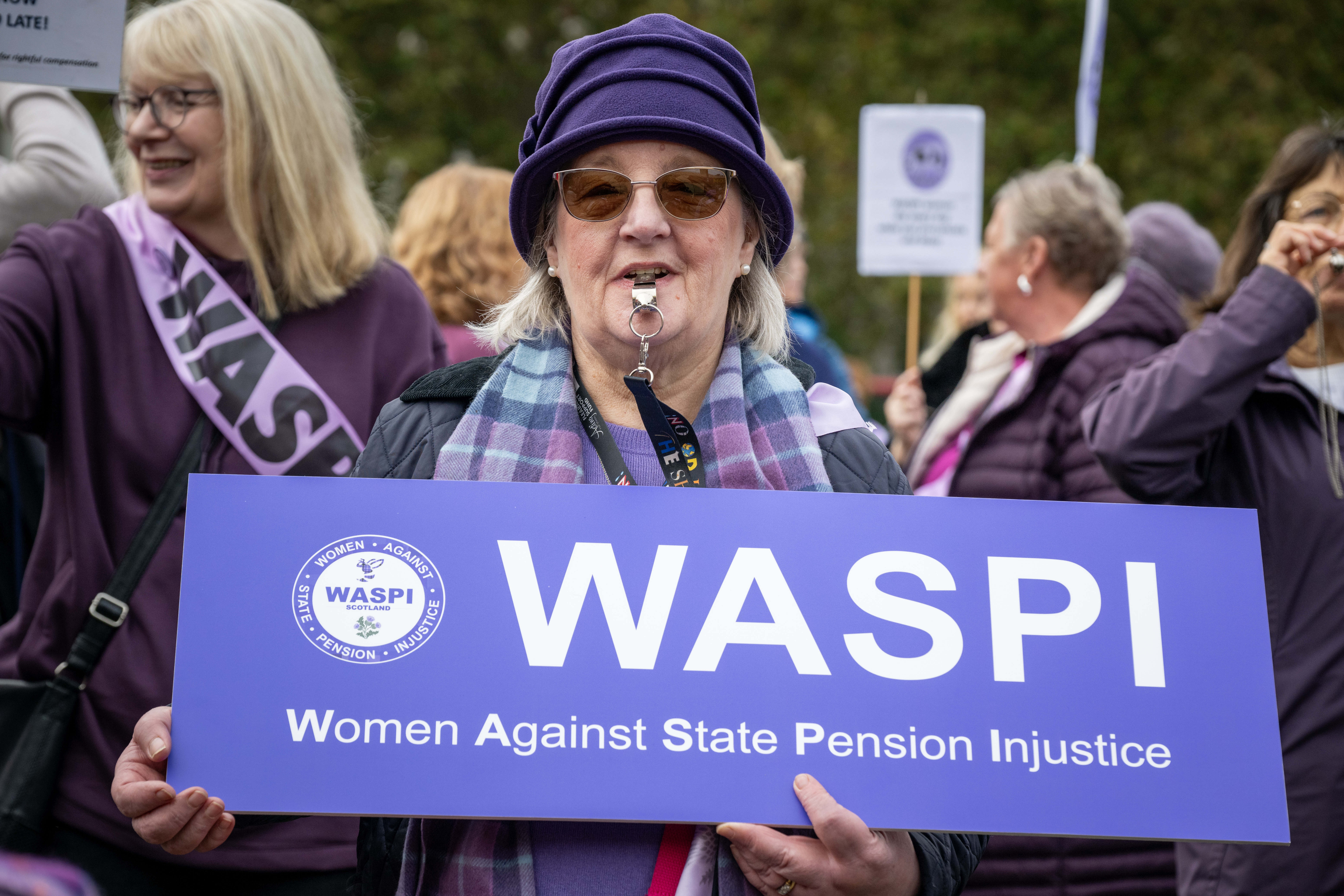
A WASPI campaigner at a demonstration
“My retirement has brought no joy, just uncertainty. I’ve only ever been loyal to this country, but unfortunately, my loyalty has not been repaid.
"It’s an absolute disgrace, but the WASPI campaign gives me some hope. We are not going away!”
For more information and to support the WASPI campaign, visit waspi.co.uk
Helen is a writer and editor with many years’ experience as editor-in-chief. She’s written on a wide range of topics for both national publications and brands, and particularly enjoys interviewing anyone with a fascinating and moving tale to tell. She now specialises in features about food, health and real-life issues, particularly focusing on sensitive, awareness-raising interviews in support of charities and community groups.
